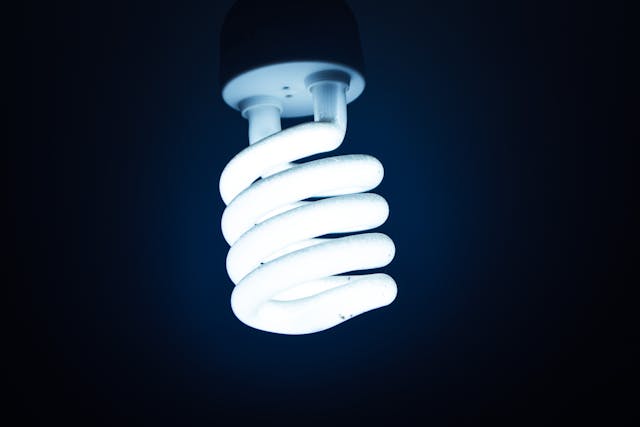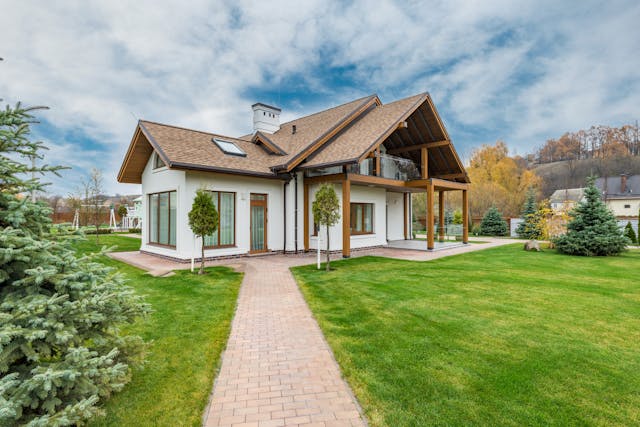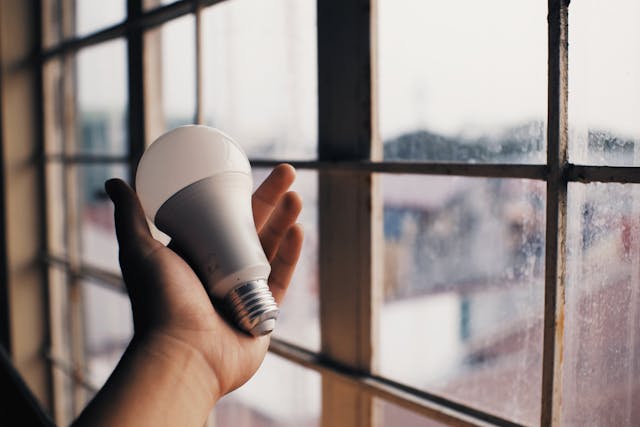
- Upgrade to energy-efficient appliances with high ratings and features to significantly reduce electricity usage and save on utility bills.
- Seal air leaks with weather-stripping or caulking and add insulation to prevent energy loss and increase savings.
- Install programmable thermostats to optimize heating and cooling schedules, leading to substantial annual savings on energy costs.
- Switch to LED lighting and upgrade windows, doors, and roofing to improve insulation, reduce energy consumption, and enhance home value.
With the rising cost of energy and increasing awareness of our environmental impact, many homeowners are looking for ways to improve their home’s energy efficiency. Not only does improving energy efficiency help reduce utility bills, but it also helps lower carbon emissions and lessen our overall environmental footprint. This blog will discuss significant ways you can improve your home’s energy efficiency to save money and help the planet.
Upgrade to Energy-Efficient Appliances
One of the most significant sources of energy consumption in a home is from appliances. If your appliances are outdated, they could be using far more energy than necessary. Consider upgrading to appliances designed to use less electricity while still providing top performance. When choosing appliances, consider the following four factors:
Energy Efficiency Rating
Energy efficiency ratings are measured on a scale from A+++ to G, with A+++ being the most energy-efficient. Always look for appliances with higher energy efficiency ratings to ensure they use less electricity.
Size and Capacity
Bigger is not always better when it comes to appliances. Choosing an appliance that is the right size and capacity for your household’s needs will help prevent unnecessary energy waste.
Features
Many modern appliances come with energy-saving features, such as eco modes or automatic shut-off timers. Consider these added features when choosing new appliances to further reduce your home’s energy consumption.
Maintenance and Lifespan
Regular maintenance can help prolong the lifespan of your appliances, reducing the need for frequent replacements. Additionally, newer appliances are designed to be more durable, meaning they will likely last longer and save you money in the long run.
By upgrading to energy-efficient appliances, you can significantly reduce your home’s energy consumption and save money on utility bills. You’ll also be doing your part in helping the planet by reducing your carbon footprint.
Seal Air Leaks
Air leaks in your home can lead to significant energy loss as heated or cooled air escapes through cracks and gaps in windows, doors, and walls. Invest in weather-stripping or caulking to seal these leaks and keep conditioned air inside your home where it belongs. You may also want to consider adding insulation to your attic or walls for even more significant energy savings.
Install Programmable Thermostats
Heating and cooling account for a large portion of a home’s energy usage. By installing programmable thermostats, you can set your HVAC system to run at optimal temperatures when you’re home and adjust settings when you’re away or asleep. This simple upgrade can lead to substantial savings on your heating and cooling costs each year.
Switch to LED Lighting

Traditional incandescent light bulbs waste a lot of energy by producing heat as well as light. By switching to LED lighting throughout your home, you can significantly reduce your electricity usage while still enjoying bright, efficient lighting in every room. LED bulbs last longer than traditional bulbs, so you’ll also save money on replacements over time.
Upgrade Windows and Doors
Old windows and doors can be major culprits in allowing heat transfer into or out of your home. By upgrading to double-paned windows with low-e coatings and ENERGY STAR-rated doors, you can improve insulation and reduce drafts that lead to wasted energy. These upgrades not only increase your home’s energy efficiency but also enhance its curb appeal and value.
Upgrade Your Roof

Roofing materials play a significant role in the energy efficiency of your home. Consider upgrading to reflective roofing materials, which reflect sunlight and heat rather than absorbing them, keeping your home cooler and reducing the workload on your air conditioning system.
Additionally, a properly insulated roof can help prevent heated or cooled air from escaping through the top of your house. Employ the help of a professional residential roof replacement service provider to ensure the job is done correctly and efficiently. They can also help you select the best roofing materials for your home’s needs.
Improving your home’s energy efficiency is beneficial for reducing utility bills and a step towards a more sustainable and environmentally friendly lifestyle. By upgrading to energy-efficient appliances, sealing air leaks, installing programmable thermostats, switching to LED lighting, and making significant upgrades like enhancing windows, doors, and roofing materials, homeowners can significantly reduce their energy consumption and carbon footprint. These changes contribute to a healthier planet and offer long-term savings and increased comfort in your home.
